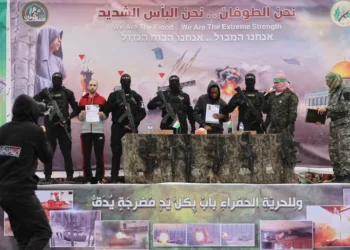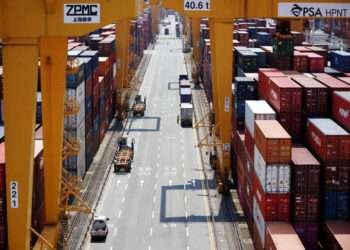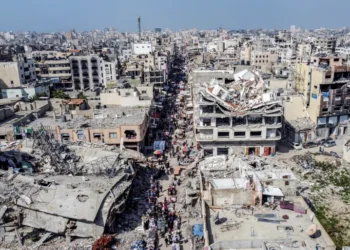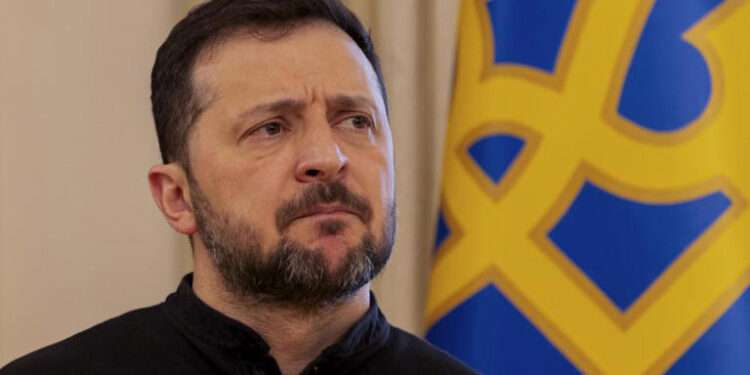On Friday, July 21, 2023, a number of agreements in the fields of energy, development and trade were signed between Sri Lanka and India, indicating a strengthening of economic connections between the two close neighbors.
Sri Lankan President, Ranil Wickremesinghe is in India for an official visit, his first since taking up the top job last year. He arrived in New Delhi a day earlier.
Wickremesinghe had discussions with Indian Prime Minister, Narendra Modi on Friday and the two leaders unveiled agreements on technology, renewable energy and greater connectivity designed to deepen bilateral relations between India and Sri Lanka.
“My visit to India has provided an opportunity to review our bilateral relationship, leverage the strength of geographical and civilizational links, reinforced trust and confidence for our future prosperity in the modern world.”
Ranil Wickremesinghe
In order to increase their economic cooperation, the two leaders, according to Modi, adopted a vision that included strengthening maritime, air and energy connectivity between their citizens and accelerating mutual cooperation in tourism, trade and higher education.
“The past one year has been full of challenges for the people of Sri Lanka. Being a close friend, as always, we stand shoulder-to-shoulder with the people of Sri Lanka,” Modi said.
Also, Modi and Wickremesinghe hailed trade opportunities in energy and infrastructure. That included the potential for a petroleum pipeline from southern India to Sri Lanka and developing Trincomalee, a northeastern coastal city in Sri Lanka, into an industrial hub.
Moreover, the two leaders affirmed support for fully implementing a plan supported by India to share power with the Tamil minority population of Sri Lanka in the north and east of the island. Language and cultural relations exist between the minority and Tamil people in southern India.
“We hope that the government of Sri Lanka will fulfill the aspirations of the Tamils,” Modi said.
Wickremesinghe disclosed that he presented Modi with a proposal for reconciliation and power sharing, saying that he has urged his parliament to reach a consensus and resolve the long-running conflict. His delegation also included two Sri Lankan Tamil ministers.
Over the years, Sri Lankan governments have pledged to India that they will share more power with Tamils to ensure peace and fully implement the 13th Amendment, which created provincial councils with a degree of decentralized powers.
However, they have so far failed to do so, much to the dismay of both Tamil political leaders in Sri Lanka and in India.
A New Chapter
According to Constantino Xavier, a fellow at the Centre for Social and Economic Progress, Wickremesinghe’s visit is “a clear signal that India’s support over the last year is appreciated.”
It shows that India “will be the most important partner for Sri Lanka to reset its economy, its bureaucracy, its decision making systems for future economic partnerships,” Xavier opined.
“This visit marks, in that sense, a new chapter,” he added.
Ties between the two countries improved last year as Sri Lanka struggled through its greatest economic crisis in recent memory, which was brought on by a severe foreign currency shortage that caused civilians to queue for days to buy petrol. Last year, it also stopped making payments on its international loans.
In order to bring about the much-needed stability while its bankrupt neighbor battled an outstanding total debt of over $83 billion, of which $41.5 billion was foreign, India offered its neighbor with essential financial and humanitarian help worth over $4 billion, including food, medication, and fuel.
It was also the first creditor to extend a letter of support towards Sri Lanka’s debt restructuring efforts that helped kickstart support from the IMF, which approved a $3 billion bailout package in March.
READ ALSO: World Bank Report Declares Ghana’s Economy To Recover Its Potential By 2025





















